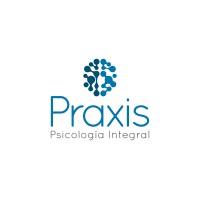
Trastorno Bipolar 30-03-2021
Bipolar disorder (formerly called manic-depressive disease) is a mental disorder that causes unusual changes in the mood, energy, activity levels, concentration, and ability to perform daily tasks.
People who suffer from bipolar disorder may alternate between episodes when they feel euphoric and energetic (mania) and other periods when they feel sad, hopeless, and depressed (depression). That is, they alternate between the two "poles" of the mood, which is why it is called a "bipolar" disorder.
Symptoms of bipolar disorder
| Manic Episode | Depression episode |
| Euphoric, irritable or hostile mood | Depressed, sad, hopeless mood |
| More energy and less need to sleep | Problems falling asleep or keeping asleep or sleeping too much |
| loss of appetite | weight loss or weight gain |
| Fast speech and little concentration. Thoughts speed up | Slow speech, trouble concentrating and making decisions. |
| Feelings of greatness or beliefs of having a lot of power (delusions)/ hallucinations | Handicap, feelings of uselessness |
| Making many plans at once, unrealistic ideas. Unusually high sexual desire. | Little interest in almost all activities inability to experience pleasure |
| Impulsiveness, lack of judgment ( e.g. spending or giving away a lot of money or having reckless sex). | Thoughts of death or suicidal thoughts. |
*Episodes of "hypomania": milder symptoms of mania, without delusions or hallucinations, that do not interfere with daily life.
Types of bipolar disorder
Bipolar disorder I: Usually episodes of mania and episodes of depression.
Bipolar disorder II: depressive episodes and hypomanic episodes.
Cyclothymia: periods of hypomanic symptoms, as well as periods of mild depressive symptoms that do not meet the diagnostic requirements of a hypomanic episode and a depressive episode.
Bipolar disorder is usually diagnosed during late adolescence or early adulthood. There is no single cause for bipolar disorder, although there is usually an inherited component. It usually requires lifelong treatment with mood-stabilizing drugs and antipsychotics when needed, which prevent seizures or make them milder. Psychotherapy and psychoeducation is beneficial for the management of this disorder.
With good compliance with their treatment, people with bipolar disorder can lead a completely normal life and be highly functional.
Do you like this article? The fact that today you think one thing and tomorrow another does not mean you are bipolar
Sources:
- National Institute of Mental Health. (2021, 20 marzo). NIMH » Bipolar Disorder. NIMH. https://www.nimh.nih.gov/health/topics/bipolar-disorder/index.shtml
- A Look at Bipolar Disorder. (2003, 7 febrero). WebMD. https://www.webmd.com/bipolar-disorder/mental-health-bipolar-disorder.

